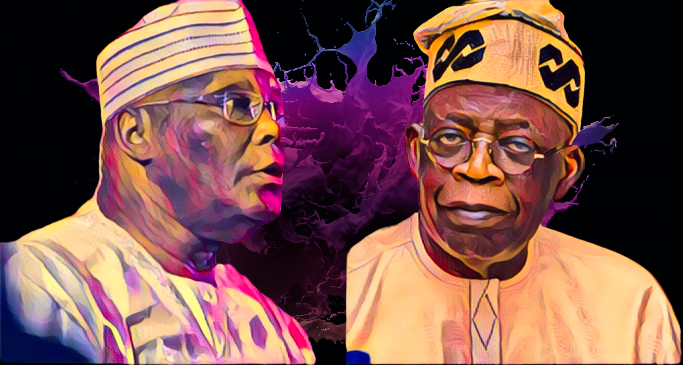Former Vice President Atiku Abubakar has launched a scathing critique of President Bola Tinubu’s economic strategies, accusing them of exacerbating hardships for Nigerians and steering the country towards a deeper economic downturn. In a detailed statement released Sunday, Atiku, the Peoples Democratic Party’s (PDP) presidential candidate in the recent elections, articulated his concerns over the “Renewed Hope Agenda,” claiming it inflicts more pain across the nation.
According to a report by This Day Live, Atiku’s critique extends to the shrinking private sector and the exodus of multinational companies, highlighting the growing cost of living pressures that have compounded misery for the average Nigerian. He argues that the 2024 budget, lacking in innovation and burdened with wasteful expenditures, fails to set a course for economic transformation or alleviate the populace’s struggles.
The former vice president further lambasts Tinubu’s handling of the new subsidy regime and the free-floating exchange rate policy, describing them as uninformed and chaotic. Atiku urges the current administration to admit its failings and seek guidance from more knowledgeable sources to prevent the economy from sinking further.
In response, the presidency, through a statement by Special Adviser Bayo Onanuga, defended Tinubu’s policies, framing Atiku’s criticisms as baseless and lacking in alternative solutions. The presidency asserts that Tinubu’s reforms, though painful in the short term, are designed to foster long-term prosperity. It also refutes claims of a shrinking private sector and an exodus of multinational companies, emphasizing ongoing efforts to stabilize the economy and maintain its growth trajectory.
This public exchange underscores the deepening divide between Nigeria’s current administration and opposition figures, with each side presenting differing visions for the nation’s economic future. As debates over policy effectiveness and the direction of Nigeria’s economy continue, the dialogue between these political leaders reflects broader concerns about governance, reform, and the well-being of Nigerians.


